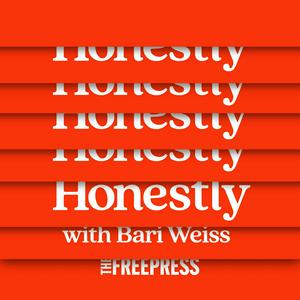Axios Founders: Who Broke the Media?
Depending on who you talk to, Jim VandeHei and Mike Allen are either the swampiest of swamp creatures—the epitome of all that is wrong with political journalism—or, alternatively, two of the most interesting, successful entrepreneurs in the new media landscape.
In 2006, VandeHei left The Washington Post to co-found Politico, where he was executive editor. His first hire was Mike Allen, then of Time magazine.
Politico turned into a massive hit, with Allen as its star writer. During the Obama years, Allen was so well-sourced that he became, in the words of Mark Leibovich at The New York Times, “the man the White House wakes up to.”
But then, in 2017, Mike and Jim decided to start something new—a website called Axios, which, in the beginning, was really a newsletter Mike wrote every day. They delivered news straight to your inbox and kept it short, snappy, and heavy on emojis. They called it “smart brevity.”
Their emails are filled with invocations to “go deeper” and “be smarter.” And at the end of the day, they send you an email called “Finish Line” that’s essentially life advice for young professionals on the make. A recent one advised millennials nearing middle age to begin something new, like ice skating, while another advised readers to ditch Google Maps to keep their brains sharp. It’s like MAHA for D.C.’s professional-managerial class.
They were, in a sense, pioneers of a new kind of online journalism. Long before seemingly everyone had a Substack, they were using one of the oldest internet applications—email—to get news to subscribers.
So Mike and Jim are big deals in journalism and have been for a long time.
But in case you haven’t noticed, and we don't know how you would have missed this if you listen to this show, journalism is in deep trouble. This is in large part because Americans have lost faith in journalists. According to Gallup, roughly two-thirds of Americans had a great deal of faith in the news media in 1970. Today, only 31 percent of Americans say the same—while 36 percent say they have no faith in the news media at all.
How can that trust be rebuilt? Are we destined to live in a world of different realities and alternative facts? Should the mainstream media apologize for all they have ignored or covered up or gotten wrong over the past few years?
To boil it all down: Does real, honest journalism have a future in America?
If you liked what you heard from Honestly, the best way to support us is to go to TheFP.com and become a Free Press subscriber today.
Learn more about your ad choices. Visit megaphone.fm/adchoices

